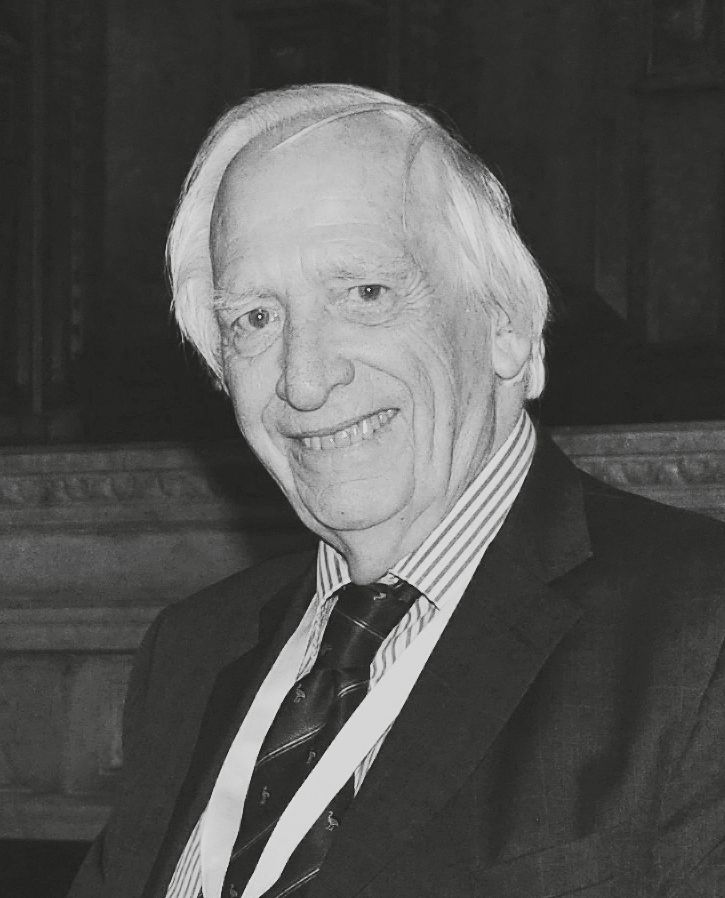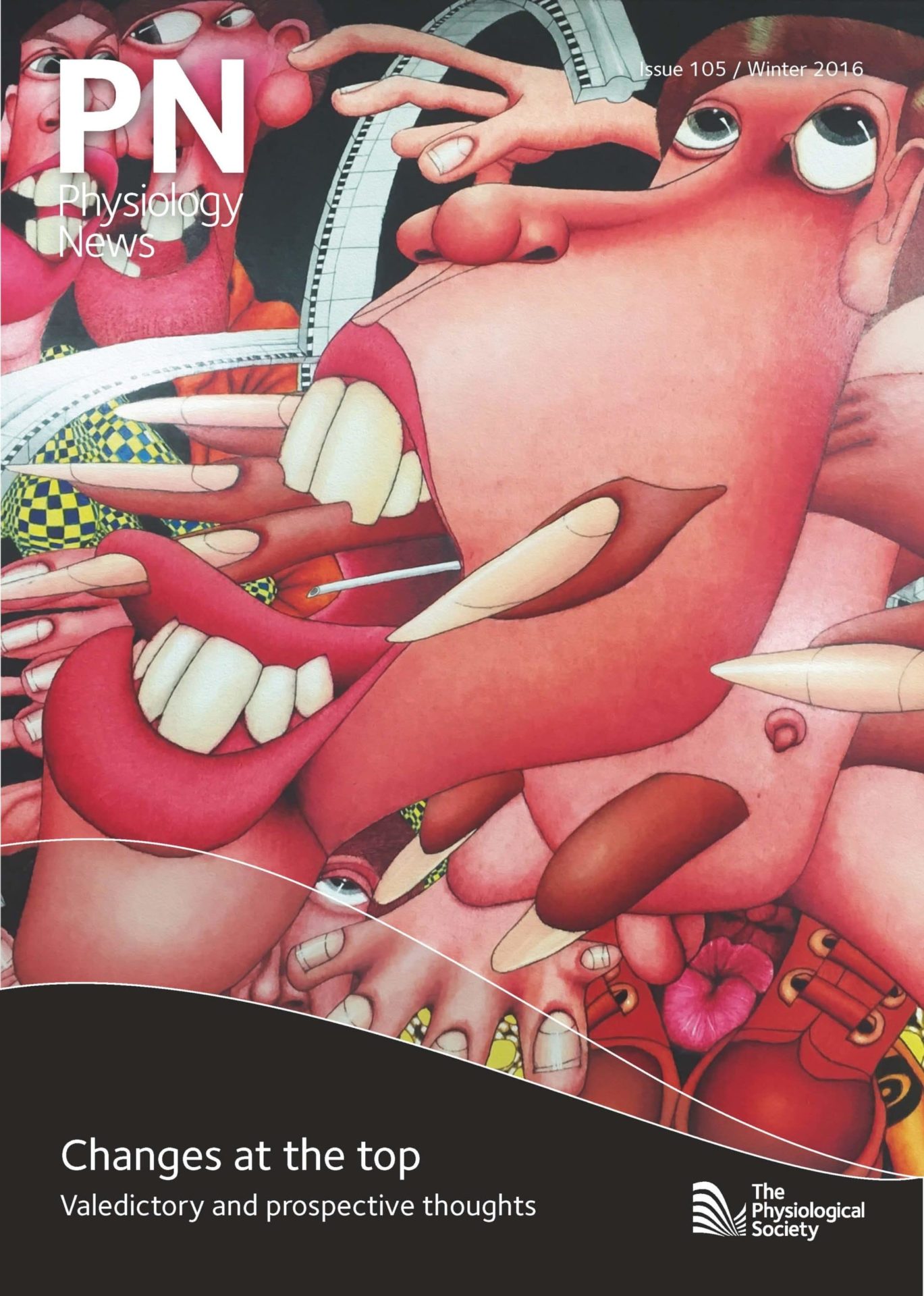
Physiology News Magazine
Obituary: Alan W Cuthbert FRS, FBPhS, FMedSci
1932 – 2016
Membership
Obituary: Alan W Cuthbert FRS, FBPhS, FMedSci
1932 – 2016
Membership
Helen Cox
Kings College London, UK
https://doi.org/10.36866/pn.105.44

Alan Cuthbert was born in Peterborough and educated initially at Deacon’s Grammar School Peterborough, then at Leicester College of Technology where he studied Pharmacy. His growing interests in biology led him to the University of St Andrews where Alan was one of the first students to study the newly introduced BSc in Pharmacology. Following a three year service commission in the Royal Navy, Alan was determined to pursue a career in research and after writing letters of introduction to some eminent biologists of that time, he recounted that he spent an inspirational half day with Sir Henry Dale (at the Wellcome Foundation), who then introduced him to Professor Wilhelm Feldberg and then to his eventual supervisor, Gladwin Buttle, Professor of Pharmacology at the School of Pharmacy (Brunswick Square, London). A Pfizer Fellowship evolved permitting Alan’s PhD research on acetylcholine receptors in chicken amniotic smooth muscle, with additional funds from the British Egg Marketing Board.
During his time at ‘The Square’ Alan impressed visiting scientists most notably Professor Edith Bulbring who invited him to undertake sucrose gap experiments to characterise the electrical activity of different smooth muscle preparations in her laboratory in Oxford. Whilst there Alan met Arnold Burgen, a pharmacologist visiting from Canada, and this contact lead Alan a few years later to apply for a University Demonstratorship in Professor Burgen’s then embryonic Department of Pharmacology within the Physiological Laboratory at the University of Cambridge. Alan began publishing his research in 1964, one of his first papers on the electrical and mechanical properties of chick amnion being a single author paper in Nature. His career-long interest in epithelial ion transport processes and their modulation by hormones started in the late 1960’s utilising a range of preparations such as frog skin, toad bladder, fish gills, rodent and human intestinal epithelia. This focus continued over four decades resulting in more than 250 publications, with much of this work being published in the Journal of Physiology and the British Journal of Pharmacology.
Alan was promoted on the basis of his research to Reader in Pharmacology (1973-1979) and then to Sheild Professor and Head of the Department of Pharmacology (1979-1999) which was then located at the Addenbrooke’s Hospital site near the MRC Laboratory of Molecular Biology. His research at that time focused on electrogenic epithelial sodium and chloride ion transport, while as Head of Department his energies aimed to establish the department’s financial independence. In 1989 the department moved back in to Cambridge city centre to a new building on Tennis Court road, where it remains today. This relocation to purpose built accommodation closer to other biomedical science departments was probably Alan’s greatest legacy. It catalyzed academic-industrial interactions via the embedded Glaxo Institute of Applied Pharmacology (headed by Patrick Humphrey) as well as with other University departments and was geographically preferential for undergraduate Pharmacology teaching.
Professor Cuthbert was Fellow of Jesus College Cambridge (1968-1991) and then Master of Fitzwilliam College (1991-1999). He was Deputy Vice-Chancellor, University of Cambridge (1995-1999). Other positions included: chair of the Editorial Board of the British Journal of Pharmacology (1974-1982); Vice President (1997-2000) and then President of the Federation of European Pharmacology Societies (2000-2002); Foreign Secretary for the British Pharmacological Society (BPS: 1997-2000). In 2005 he was awarded the BPS Wellcome Gold Medal for his outstanding research achievements.
Alan retired in 1999, but as a true experimentalist he continued working at the bench (within the Department of Medicine) collaborating with Dr Lesley MacVinish and assisted by his long-term technician, Margaret Hickman. He continued an active international collaboration with Professor Jeff Wine (Stanford University) pursuing novel cystic fibrosis pharmacotherapeutics and published his work up until June 2015.
Always a strong proponent of the disciplines of Pharmacology and Physiology, his demise at the age of 84 is a shared loss to both the Pharmacological and Physiological Societies alike. He died on 27 August 2016 and is survived by his wife, Hetty and their sons, Adrian and Bruce, and four grandchildren.
